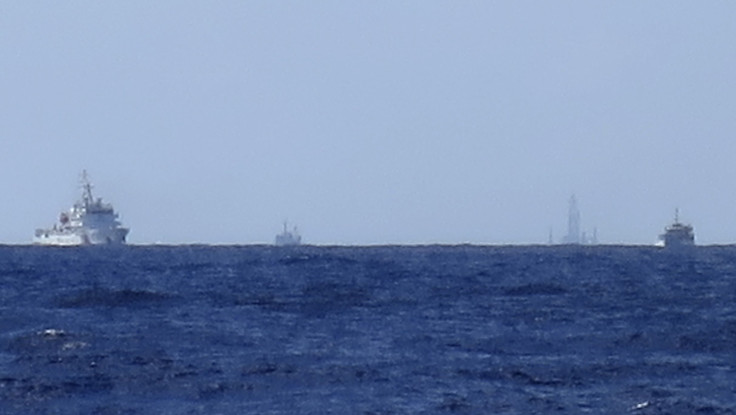Vietnam Asserts South China Sea Claims Amid Renewed Chinese Push

Vietnam’s Foreign Ministry spokesperson Le Thi Thu Hang, on Thursday, asserted the country’s claim to Vanguard Bank, a disputed area inside Vietnam's Exclusive Economic Zone. China claims the same area under the “Nine-Dash-Line” that encompasses most of the South China Sea and largely ignores any EEZ in the region.
The Vanguard Bank is the westernmost reef in the resource-rich Spratly Islands, where the two countries, along with the Philippines, have staked claims. The problem is that China’s size and military strength allows it to bully anyone into submission. In Vietnam, China’s strategy has been to strain Vietnam’s defenses by placing huge oil rigs, survey ships and even warships in strategic locations.
The only way for Vietnam to fight back is to appeal to multinational entities like the United Nations and the so-called “global community” to invoke international law that in the past has favored EEZs over China.
A ministry spokesperson said, “Vietnam considers that all activities on the East Sea [the Vietnamese name for the South China Sea] must abide by the United Nations Convention on the Law of the Sea (UNCLOS), including respecting the sovereignty, sovereign rights and jurisdiction rights of coastal nations, as well as making practical contributions to the maintenance of peace and stability in the region.”
She continued, “Vietnam resolutely protects its sovereignty and legal rights on the East Sea through methods allowed by international law.”
There is another option for Vietnam to consider and that is to file a lawsuit against China in an international court. According to Pham Ngoc Minh Trang, a lecturer at Vietnam National University, Hanoi has a clear case based on a precedent set in 2016 when the Philippines prevailed over China at the Hague-based Permanent Court of Arbitration, which rejected nearly all of Beijing’s claims.
In the aftermath of that case, China simply ignored the court’s jurisdiction and when a more Chinese friendly administration took over in Manila under President Duterte, it moved to appease China by courting more investments from Asia’s biggest economic player.
Radio Free Asia (RFA) columnist Carl Thayer said Vietnamese leaders face three options in dealing with Chinese assertiveness. In an RFA column published Wednesday, he wrote that Hanoi can “continue to muddle through by ‘cooperating and struggling’ with China, back down in order to relieve unrelenting Chinese pressure, or counter-balance Chinese pressure by stepping up security and defense cooperation with the United States.”
On Oct. 7, the Vietnam Communist Party (VCP) central committee will convene its eleventh plenum and defending the EEZ is expected to be a priority on the agenda.
© Copyright IBTimes 2024. All rights reserved.





















